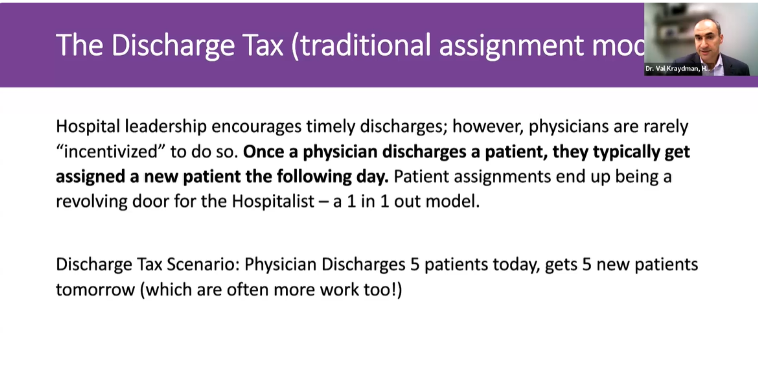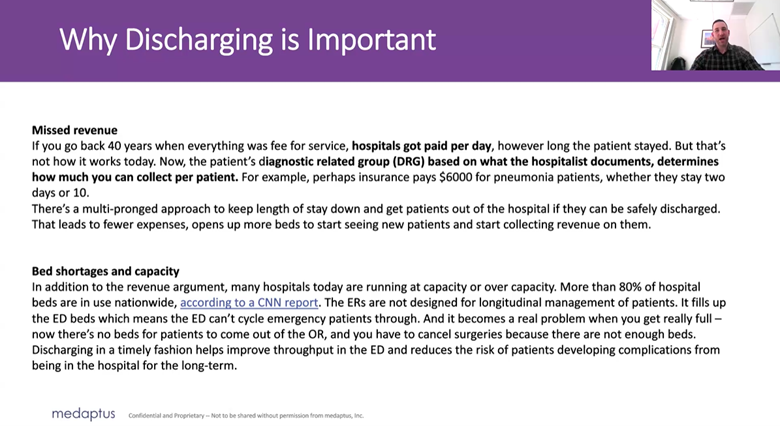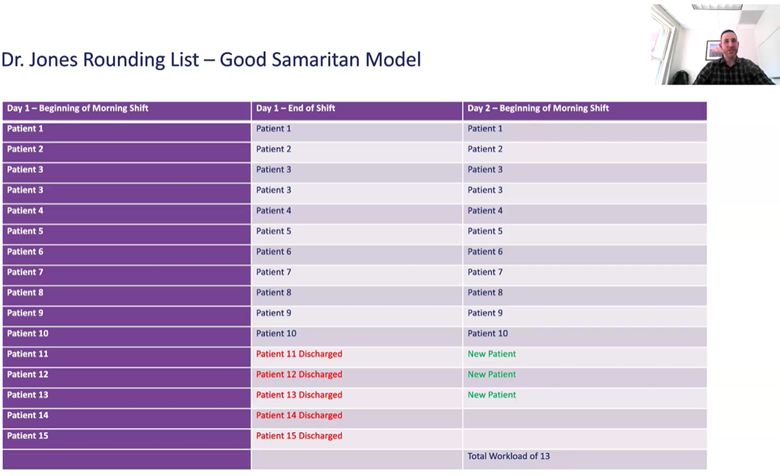Jeff Cibotti and Dr. Val Kraydman recently hosted a session on a common problem in most hospitals today that is creating burnout among your providers: the discharge tax.
Many hospitalists aren’t even aware of this problem and how it could create burnout and unfair workloads for their physicians.
What is the discharge tax? Am I paying it?
The discharge tax is simply a term for a hospitalist who is penalized for discharging a patient by automatically getting assigned a new admit the next day. This often requires more work on the physician’s part (to take new patient history for example).
 As you can see above, a hospitalist can’t win. You discharge a patient but get assigned a new one shortly after, creating the discharge tax.
As you can see above, a hospitalist can’t win. You discharge a patient but get assigned a new one shortly after, creating the discharge tax.
Some hospitals, in theory, reward and compensate with financial incentives for their discharge rates, but the patient workload is still unbalanced.
Why is discharging so important?
“Don’t hospitals get paid for each day a patient is in the hospital?” Not anymore. Discharging is not just financially important; it’s important to get patients discharged when they are well enough to go home for their health—the longer you stay, the more you risk getting an infection. When done safely, discharging is beneficial to everyone.
 How Medaptus Solved the Discharge Tax with Good Samaritan Hospital
How Medaptus Solved the Discharge Tax with Good Samaritan Hospital
High-value physicians want to reward themselves by having a more controlled census over a consistent amount of time. We worked with Catholic Health’s Good Samaritan Hospital to eliminate the discharge tax, using our patient assignment software solution, Assign, which encourages timely and accurate discharges, all while saving the hospital money and resources.
The new model includes evenly distributing new patients among all providers each morning. For example, if you have 10 new patients coming in and 5 providers rounding, every provider will get two new patients.
 As you can see above, the provider discharged 5 patients the day before, and with each new patient being distributed evenly the next day, only had 3 new patients.
As you can see above, the provider discharged 5 patients the day before, and with each new patient being distributed evenly the next day, only had 3 new patients.
Benefits Good Samarian has seen since using this model:
- Distribution got easier
- Providers stopped complaining about unfair workloads
- Length of stay improved
Curious about how Medaptus created this workflow? Visit our website to find out more.
Watch the session highlight below.
Get the latest updates and news delivered to your inbox.
Subscribe to our newsletter today.




